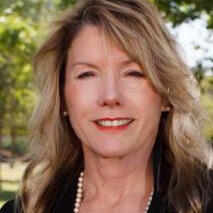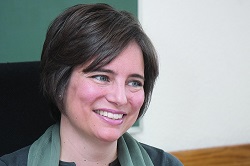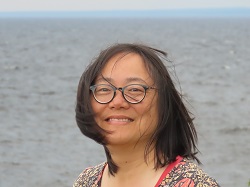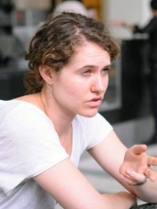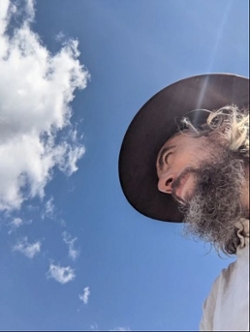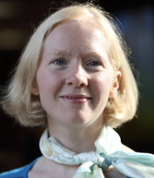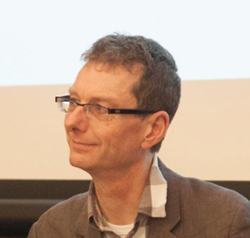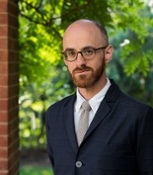Events
Speakers in the Colloquium present works in progress drawn from their current research. We post titles and papers close to the presentation date.
All seminars take place on Fridays in the Fraser Building (Law) Room B261 at 2:30pm. Pre-seminars are held one week in advance in Fraser Building Room B148 from 1:30-2:30 p.m.
Please be sure to check the information for each event, listed below, in the event that a pre-seminar or seminar cannot be held at the customary time or place.
The Victoria Colloquium recognizes the generous support of the Faculty of Humanities.
2025/26
October 10, 2025 David O. Brink (Philosophy, University of California, San Diego)
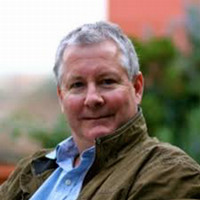
Title: TWO KINDS OF DESERT
Abstract: This essay explores two different traditions of thinking about desert. Aretaic desert insists that rewards and sanctions track an agent’s aggregate level of virtue and vice. Accountability desert assesses the praise or blame agents deserve for particular actions. An important special case of accountability desert is retributive desert, which insists that culpable wrongdoing is the desert basis of blame and punishment. After explaining similarities and differences between aretaic and accountability desert, the essay turns to the jurisprudential significance of this distinction. Distinguishing aretaic and accountability desert allows us to see what is problematic about criticisms of retributivism that fail to distinguish the two kinds of desert. The essay concludes by exploring whether a retributivist can maintain the centrality of accountability desert while allowing considerations of aretaic desert a limited role in sentencing, arguing that this can be done, if necessary.
Colloquium Reading: "TWO KINDS OF DESERT". David O. Brink, (2026)
Pre-Seminar Reading:
Chapter 1, "Prolegomena", from Fair Opportunity and Responsibility. David O. Brink, (2021)
Supplementary Reading:
Chapter 2,"The Reactive Attitudes and Responsibility", from Fair Opportunity and Responsibility.David O. Brink, (2021)
October 24, 2025 Yann Allard-Tremblay (Political Science, McGill University)
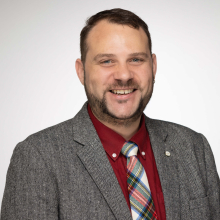
Title: ‘A Cursed Line of Mestizos and Tremendous Whores’; the Underside of the Politics of Indigenous Realness
Abstract: In this chapter, we investigate the gendered politics of who is to be considered a ‘real’ Indigenous person, which we refer to as ‘Indigenous Identity Politics’ (IIP). We argue that across settler colonial contexts, the question of ‘realness’ is inflected by settler colonial eliminatory logics, such that mixity and, a fortiori, those who are mixed or cause mixing, are repeatedly framed as threats to Indigenous authenticity and existence. We refer to and investigate this recurrent forsaking of mixity, and the harm it causes to those who are cast off, as the underside of the politics of Indigenous realness. We conclude that IIP is unavoidable in settler colonial contexts, and so must be carefully negotiated in full awareness that its underside tends to inevitably cast some as the ‘cursed mestizos’ and ‘tremendous whores,’ recalling an early 17th century attack on Indigenous mixity.
Pre-Seminar Reading: Chapter 1, Disjunctive Indigenous Resistance. Disjunctures. Yann Allard-Tremblay (2025)
Supplementary Reading: Introductory Chapter, Reconciliation Duly Considered. Disjunctures. Yann Allard-Tremblay (2025)
November 21, 2025 Sally Haslanger (Linguistics and Philosophy, MIT)
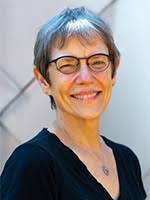
Title: Who’s in Charge Here? Micro, Meso, Macro Interactions
Abstract: Societies are complex dynamic systems and, as a result, are self-organizing – without central authorities –due to their internal structure. Historically there has been considerable debate over whether a society is a single system, or composed of multiple systems, e.g., capitalism, White supremacy, and patriarchy; in either case there are questions about how those systems (and others) interact. This issue arises especially in discussions of structural intersectionality, and this, in turn, raises questions concerning the relationship between structures and systems.
In this paper, I argue for a single system analysis, but resist the suggestion, by Nancy Fraser and others, that “the” system is capitalism. To explain how social systems emerge, change, interact, and collapse, we should attend to different (micro, meso, and macro) levels of analysis. Macro-level social systems, e.g., the contemporary global order, are composed of co-integrated sub-systems, such as political and economic systems, but also transportation systems, health care systems, and education systems. I argue that these meso-level systems are driven by capitalist,White supremacist, and patriarchal dynamics. So rather than thinking of capitalism or patriarchy as “systems,” I argue that we should see them as forces (or “logics”) at work in the wide range of material meso-level sub-systems.
A systems approach, however, is often criticized for losing track of human agency and autonomy. Following the work of Giddens, Sewell, and others, I argue that the structure of a social system is constituted by social practices – socially learned patterns of interaction – that enable us to coordinate and communicate. Such practices rely on a set of tools – a “cultural technē,” including the dynamic “logics” – for collectively interpreting and responding to the material conditions. The structure of a system shapes and constrains agency, but the possibility of individual improvisation, material intervention, and political organizing can– at least locally – influence how the system develops. The micro-level of human agency has an impact on the meso-level practices that constitute health care, transportation, and political systems. And collective efforts to change our meso-level practices is a key strategy for social justice efforts.
Colloquium Reading: Who’s in Charge Here? Micro, Meso, Macro Interactions, Sally Haslanger, (June 2025)
Pre-Seminar Reading:"What is a Social Practice?", Sally Haslanger, (July 2018)
Supplementary Reading: “Systemic and Structural Injustice: Is There a Difference?”, Sally Haslanger, (September 2022)
January 30, 2026 Inés Valdez (Political Science, Johns Hopkins University)

Title:Coloniality of Power meets Dependency Theory: Development, Marginality, and Marx’s Commune in Quijano’s Socialization of Power
Abstract: Of the two dominant Latin American traditions of anticolonialism, Anglo-American political theorists favor the coloniality school and eschew the Marxist tradition. This is problematic because the founder of the coloniality school, Aníbal Quijano, belonged to the Marxist school of dependency theory and retained its framings in later work. Thus, when political theorists engage only with Quijano’s coloniality, they offer at best an incomplete reading. Moreover, when theorists engage U.S.-based Quijano interpreters like Walter Mignolo, his privileging of epistemology and identity and his antagonism toward Marxism make for a derivative and unnuanced account of coloniality, substantially distinct from Quijano’s. To support these claims, we show that the 1980s, which mediate Quijano’s two periods, is a synthesis of previous Marxist dependency theory work on authoritarian developmentalism and marginality. We further demonstrate how Latin American Marxist concepts appear in his work on coloniality, even if he abandons his earlier critique of political economy.
Bio: Inés Valdez is Professor of Political Science at Johns Hopkins University. She works on political economy, democratic theory, and the Latin American and Black Marxist traditions, as well as the thought of Immanuel Kant and W. E. B. Du Bois. Her award-winning work has appeared in the American Political Science Review, Political Theory, and other journals, and published by Cambridge University Press, including most recently Democracy and Empire: Labor, Nature, and the Reproduction of Capitalism. She is currently the Richard B. Fisher Fund Fellow at the Institute for Advanced Study in Princeton.
Colloquium Reading: Coloniality of Power meets Dependency Theory: The Latin American Marxist Legacy in Aníbal Quijano’s Account of Coloniality, Inés Valdez, Segundo Montoya Huamaní (2026)
Pre-seminar Reading:"Reconsidering the New International Economic Order: The Marxist
Dependency Critique and the Politics of Anticolonialism", Inés Valdez (2025)
Supplementary Reading: "Techno-Racism, Manual Labor, and
Du Bois’s Ecological Critique, Chapter 4, Democracy and Empire", Inés Valdez, (2023)
February 13, 2026 Matilda Arvidsson (Law, University of Gothenburg)
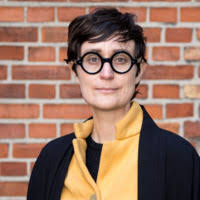
Title: Code, Knit, Resist: Knitting as a Feminist Legal Method
Abstract: This talk examines the relationship between digital technologies, women’s yarn-based practices, and feminist legal methods of resistance, intergenerational alliances, and care. It moves from Second World War histories of women knitting code into garments within European resistance movements to contemporary practices such as knitting the “anti-surveillance jumper”, a knitwear designed to interfere with CCTV facial-recognition systems. Across these sites, yarn work appears not as pre-technological craft, but as a historically and conceptually central form of technological knowledge and feminist mode of resistance. I argue that embodied yarn practices—knitting, weaving, and related techniques—constitute a feminist legal method for engaging critically with law, power, and governance. Long positioned within the “private” sphere, yarn work is here reframed as a mediating practice that troubles the public/private divide foundational to modern legal orderings. It also troubles gendered imaginaries of ”intelligent” technologies. Yarn work’s apparent modesty enables forms of resistance and care that operate alongside, beneath, and against dominant legal, technological and ideological regimes of domination, surveillance, and extraction.
The talk is structured as a participatory space. It is a “regular academic talk”. It is also a space where yarn and needles will be available for those who wish to engage in yarn work while listening and during discussion. Bring your own yarn work if that is something for you. No prior skills or experience are required; participation, observation, resistance and creative experimentation are all understood as part of feminist legal methodology.
Bio: Dr Matilda Arvidsson is a legal and interdisciplinary researcher and Associate Professor of international law at Lund University, Sweden. Her research focuses on how humans and non-humans, technologies and institutions produce and embody law and justice.
Pre-seminar Reading:'On Gardens of the Anthropocene: Gendered Violence, Colonial Legal Enclosures, and Feminist Posthuman Kinship', Matilda Arvidsson (2025)
Colloquium text: Knit, code, resist, Matilda Arvidsson (In press)
Knit Pattern: Anti-surveillance sweater pattern
March 27, 2026 Davina Cooper (Law and Political Theory, King's College London)
2024/25
October 4, 2024 Geoff Mann (SFU Geography)

Title: Climate of Uncertainty
Abstract: Caught in the maelstrom of climate breakdown, global pandemic, skyrocketing inequality and proliferating ethno-nationalisms, it is sometimes easy to forget this is not the first time the world has seemed to teeter on a precipice. Half a century ago, in the shadow of nuclear buildup, Hannah Arendt remarked, “to the question how shall we ever be able to extricate ourselves from the obvious insanity of this position, there is no answer”. Then, as now, an apocalyptic sensibility was not confined to Chicken Littles or street-corner preachers, but had become, paradoxically, quite normal.
And yet, even as we are reminded of the naivete of declaring “this time it’s different” the current conjuncture does seem different—and in many ways, whether that is “really” true is a secondary question. Today, after more than two centuries of arrogant triumphalism in the wealthy part of the world, much of the planet seems to be degenerating into what one could be forgiven for calling permanent emergency, the kind of conditions the wealthy and powerful of the world have often visited upon other peoples and places, but have mostly been able to defer at home. The broad narrative of history as told by this “civilization”—a bumpy but generally consistent path called “progress”—does not make much sense any more. If that history has a plot, even the most privileged of us are discovering it might very well be tragic, and we are in a transition during which “adaptation” supplants “progress” as its object.
I am currently tangled up in the very early stages of a project focused on the sense of concatenated but uncertain calamity, and attempts to come to grips with it. While my “empirical” emphasis has thus far largely been climate oriented, I am interested more broadly in investigating the pasts and presents of uncertainty, and how our anxious efforts to manage it—politically, economically, institutionally and culturally—are destabilized and remade in this precarious moment. Approaches to uncertainty might be able to provide some orientation in these uncertain times. My goal sympathetic but rigorous critique of the effort to tame, diminish or dismiss uncertainty—or worse, to prefer any certainty at all to uncertainty—in a moment when politics and economies all over the planet are falling forward into a future for which the past often does not appear a useful guide. What approaches to the unknowability of what is to come might support collective institutions that make hope seem like a sensible thing to have, without pretending that tomorrow will be like today, or that somehow, everything will turn out all right?
Bio:Geoff Mann is Distinguished Professor of political economy at Simon Fraser University and a Senior Fellow at the Institute for New Economic Thinking. His most recent books are In the Long Run We Are All Dead: Keynesianism, Political Economy and Revolution and (with Joel Wainwright) Climate Leviathan: A Political Theory of Our Planetary Future. He is a regular contributor to the London Review of Books, the New York Review of Books, and is currently at work on a book about uncertainty. Geoff was a Guggenheim fellow in 2022-23, and a fellow at the Institute for Advanced Study at Princeton in 2023-24. He lives on the territory of the Musqueam, Squamish and Tsleil-Waututh in Vancouver.
Colloquium Reading: "Climate of Uncertainty" Geoff Mann, (October 2024)
Pre-Seminar Readings:
“Treading on Thin Air” The London Review of Books, vol. 45 no. 17 (September 7, 2023).
“It Was Not Supposed to End This Way” The Boston Review (April 13, 2019)
November 1, 2024 James Martel (SFSU Political Science)
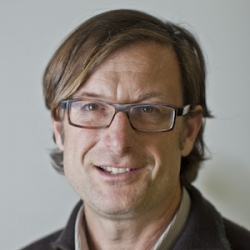
Title: Lessons from the ayllu: The Power and Promise of Continuous Political Assembly.
Abstract: In this paper, I will argue that the solution to a crisis in Western leftism, namely how to build a lasting and resilient Left community based on principles of radical participatory democracy, already exists and has for many thousands of years. This is the practice of continuous political assembly whereby ordinary life doubles as a forum in which people can meet together and make collective decisions. In the West, this ability has long been suppressed. When it comes to engaging in revolution, Western leftists organize into local assemblies but they have to start from scratch without building forms of collective knowledge and trust that can only come after a very long time. For this reason, they tend to supplement these assemblies with what I would call "archist" institutions such as parties and unions (archism being a term to refer to the system of hierarchy based capitalism that has dominated the world for the last 500 years). Inevitably these archist structures betray the revolutions that they help to foment. By looking at the case of the ayllu in the Andean Highlands, I show how a one thousand plus year form of continuous assembly has allowed the local communities a tremendous degree of resilience allowing them to survive genocide and colonialism and changing and adapting to various subsequent threats. At times (such as the Gas and Water wars in the 2000s in Bolivia) it has allowed them to win real victories. This offers a lesson to would be Western revolutionaries about how best to organize themselves so as to maximize their own chances of a lasting and effective form of self organization in the face of archist power.
Bio: James Martel teaches political theory in the department of political science at San Francisco State University. He is the author, most recently of Anarchist Prophets: Disappointing Vision and the Power of Collective Sight (Duke, 2022); Unburied Bodies: Subversive Corpses and the Authority of the Dead (Amherst College Press, 2018 and The Misinterpellated Subject (Duke, 2017).
Colloquium Reading: The Power and Promise of Continuous Political Assembly: the case of the ayllu
Pre-Seminar Reading: Chapter 5, “Navigating (and Fighting) Archism,” from Anarchist Prophets: Disappointing Vision and the Power of Collective Sight.
January 31, 2025 Jennifer Culbert (Johns Hopkins)
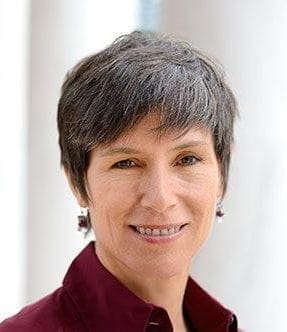
Title:
Abstract:
Bio: Jennifer L. Culbert is an associate professor in the Department of Political Science. She received her PhD from the Rhetoric department at UC Berkeley and taught at Arizona State University as well as at Amherst College before coming to Johns Hopkins University. At JHU, she teaches courses in political theory and law. She has interests in a wide range of subjects, including state violence, jurisprudence, ethics, judgment, aesthetics, and language.
She has written articles and book chapters on revenge, mercy, pain, capital punishment, metaphysics, the philosophy of becoming, and law and literature. She is the author of Dead Certainty: The Death Penalty and the Problem of Judgment (Stanford University Press, 2008) and the co-editor, with Austin Sarat, of States of Violence: War, Capital Punishment, and Letting Die (Cambridge University Press, 2009). She is currently writing a book on the philosophy of law inspired by the political thought of Hannah Arendt and her reflections on forms of art.
In 2020-2023, Professor Culbert was the Director for the JHU Program for the Study of Women, Gender and Sexuality. She is also affiliated with the Department of Modern Languages and Literatures (German section) and the Department of Comparative Thought and Literature at JHU. She is the Review Editor for the Law, Culture and the Humanities journal. In 2023, she was the Birkbeck School of Law Writer in Residence at Birkbeck, University of London. She has also been a fellow at the Murphy Institute in the Center for Ethics and Public Affairs at Tulane University (2008-2009) and a recipient of the Berlin Prize at the American Academy in Berlin, Germany (2011).
Recent articles:
- “Interrupting the Legal Person: Thinking Responsibility with Hannah Arendt,”Studies in Law, Politics and Society Vol 87, Part A, March 2022
Colloquium Readings:
Supplemental Readings:
March 7, 2025 Joan McGregor (Arizona State)
Title:
Ecological Humility and Geoengineering the Earth
Abstract:
What does the virtue of ecological humility have to say about climate change and the prospect of geoengineering the Earth to prevent the worst outcomes associated with this collective action problem? Such an intervention appears to be an attempt to merely dominate the whole planet, an action that smacks of ecological arrogance, not ecological humility. Is geoengineering the Earth inconsistent with ecological humility? In this article, we argue that geoengineering is only inconsistent with what we refer to as weak ecological humility, not strong ecological humility. Both weak and strong ecological humility begin from the same factual basis: we are vulnerable and limited creatures who live in complex interdependent relationships with other members of our ecological communities. Weak ecological humility focuses on our negative duties towards the environment or nature. Don’t dominate the Earth! Don’t Play God! Most virtue ethicists implicitly or explicitly accept such arguments for imposing limits on the wills of human beings, especially when it comes to global massive and risky intentional interventions, such as geoengineering the Earth.
Bio: Joan McGregor’s current research interests are focused on a number of questions in moral and legal philosophy.
Bioethics and environmental ethics join in research on the moral issues in sustainability. One of the most pressing sustainability questions pertains to modern food systems. Contemporary food systems are complex and multinational, involving workers and consumers from diverse cultures and economies. These systems must be capable of feeding large culturally varied populations without compromising social justice, human health, and the health of the planet. These questions are multifaceted and require approaches and methods from a variety of disciplines. In order to tackle these challenges, McGregor’s current project is directing "Just Food," a multi-year, transdisciplinary project designed to research moral and cultural questions related to modern food production and consumption, including the consideration of the unintended consequences of the practices and technologies that we develop in our food systems.
McGregor directed three National Endowment for the Humanities summer institutes on sustainability, “Fierce Green Fire: Aldo Leopold and the Foundations of the Land Ethic” in 2009 and in 2011, “Beyond the Land Ethics: Sustainability and Humanities”, "Extending the Land Ethic."
Colloquium Readings:
Toward a Philosophical Understanding of TEK and Ecofeminism
Supplemental Readings:
March 21, 2025 Dylan Robinson (UBC)
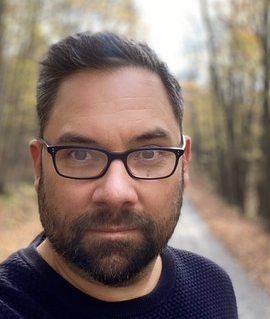
Abstract:
Pre-Seminar Readings: Introduction & Chapter One - Hungry Listening
Bio: Dylan Robinson is a xwélmexw (Stó:lō/Skwah) artist, curator and writer. From 2015-2022 he was the Canada Research Chair in Indigenous Arts at Queen’s University. Dr. Robinson’s curatorial work includes the international touring exhibition Soundings (2019-2025) co-curated with Candice Hopkins. His current research project xoxelhmetset te syewa:l, Caring for Our Ancestors, involves working with Indigenous artists to reconnect kinship with Indigenous life incarcerated in museums.
His book, Hungry Listening (University Minnesota Press, 2020), examines Indigenous and settler colonial practices of listening, and was awarded best first book for the Native American and Indigenous Studies Association, Canadian Association for Theatre Research, and the Labriola Centre American Indian National Book Award. Other publications include the edited volume Music and Modernity Among Indigenous Peoples of North America (Wesleyan University Press, 2019); and Arts of Engagement: Taking Aesthetic Action in and Beyond the Truth and Reconciliation Commission of Canada (Wilfrid Laurier University Press, 2016). As co-chair of the Indigenous Advisory Council for the Canadian Music Centre, he is currently leading a process for the reparation and redress of music that appropriates Indigenous song, and misrepresents Indigenous culture.
Event Time: Friday March 21 in Fraser 152 from 2:30 to 4:00 pm.
Colloquium Readings:
Supplementary Readings:
Chapter Two - Writing About Musical Intersubjectivity
2023/24
March 22, 2024: Talha Syed (UC Berkeley Law)
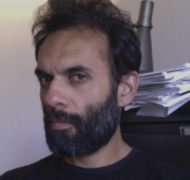
Legal Realism and CLS from an LPE Perspective
What is the role of law in political economy? And what is the role of political economy in law? And in both cases, when we speak of “law” and “political economy,” are we speaking of academic disciplines or social realities? This tangle of questions constitutes, I take it, the orienting research agenda of the emerging “law and political economy” movement in legal academia. Questions concerning not so much the interaction as the interrelation of law and political economy, with each of these understood simultaneously as fields of study and areas of social life. And within that agenda the legacy of two prior efforts at grappling with these questions—Legal Realism and Critical Legal Studies (CLS)—looms large. This Article seeks to take stock of that legacy, and to advance a critique of central aspects of the received traditions of Realism and CLS, for the sake of developing new foundations for the analysis of both law and political economy.
The best way to understand Legal Realism and CLS, this Article contends, is along two dimensions: (1) the first concerns the critique of legal reasoning; (2) the second the role of law in society. After setting out the central Realist and CLS claims on both these fronts, I offer critiques on each, ones that seek to push further in the same direction as the Realist/Crit views but in ways that ultimately repudiate the premises underlying these views. The main lines of Realism and CLS are, I contend, hostage to formalist premises in legal theory and liberal ones in social theory. This owes to the posture of internal critique that both adopted as their dominant strategy. Yet a central claim of the present Article is that the method of critique is always already a method of construction, both in the critique of law and the critique of political economy. To think the two may be separated is perhaps the fundamental flaw in the dominant strands of Legal Realism and CLS. And so in that vein, the Article offers a set of contrasting ideas for the development of legal, political, and social theory.
Bio
Professor Syed teaches at UC Berkeley Law, and is a graduate of University of Victoria Law School and Harvard University. His research is in law and political economy, with applications to intellectual property, property, torts, antitrust, educational policy, and theories of distributive justice. His present research focuses on three areas: a series of articles on the legal, political, and social theory of a distinctive "law and political economy" approach; a pair of articles on the intersection of antitrust and IP; and a book-in-progress titled Pharmaceutical Innovation Policy--From Patents to Public Utility.
Colloquium Reading:
Syed, Talha, Legal Realism and CLS from an LPE Perspective
Pre-Seminar Reading:
The pre-seminar is from 1:30 - 2:30, in room 205, Fraser bldg (March 15).
Benkler and Syed, "Reconstructing Class Analysis"
Supplemental Reading:
March 8, 2024: Pablo Gilabert (Concordia University)
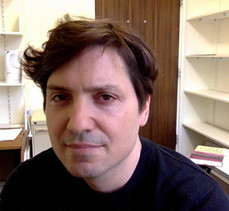
Real Interests, Well-Being, and Ideology Critique
In a common, pejorative sense of it, ideology consists in attitudes whose presence contributes to sustaining, by making them seem legitimate, social orders that are problematic. An important way a social order can be problematic concerns the prospects for well-being facing the people living in it. It can make some people wind up worse off than they could and should be. They have “real interests” that are not properly served by the social order, and the interests aligned with it are in fact “false” or merely “apparent.” Ideology critique notes the existence of such different interests and challenges the latter to facilitate the fulfillment of the former. This picture of ideology critique implies that ideology thwarts well-being This paper aims to clarify, develop, and vindicate this picture. It argues that ideology critique should indeed draw (inter alia) on prudential considerations, and that a specifically objectivist view of well-being would be fitting. The fruitfulness of this approach is shown by exploring the specific case of the critique of working practices in contemporary capitalism, in particular regarding the problem that in them workers’ self-determination, self-realization, and supportive social relationships are stunted rather than unleashed.
Bio
I am a Professor in the Department of Philosophy at Concordia University (Montreal, Canada). I am a native of Argentina. My areas of specialization are social and political philosophy and ethics. Within these areas, my research and teaching interests include topics in social justice and human rights. I am also interested in distributive issues, democratic theory, contractualist theories in normative ethics, the Frankfurt School tradition of critical theory, Kant’s practical philosophy, and Marxism and socialism.
Pre-Seminar Reading:
The preseminar is from 1:30 - 2:30, in room 205, Fraser bldg (March 1)
Pablo Gilabert “Real Interests, Well-Being, and Ideology Critique”
February 2, 2024: Susan Stokes (University of Chicago)
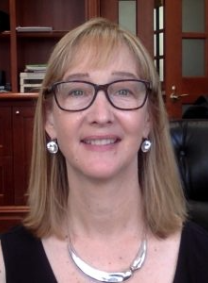
Trash-Talking Democracy: How Leaders Erode Their Democracies and How to Stop Them
Abstract
Prime ministers and presidents who aggrandize their powers and erode their democracies use rhetorical strategies to retain popular support. They use polarizing language, vilifying opposing parties, and they denigrate their countries' democratic institutions. This latter strategy, which I call trash-talking democracy, has been little studied but has significant advantages over polarization, from the standpoint of backsliding leaders. It also raises distinct challenges to those who seek to resist democratic erosion: how to bolster confidence in democratic institutions while being forthcoming about their very real shortcomings?
Bio
Susan Stokes is the Tiffany and Margaret Blake Distinguished Service Professor and Director of the Chicago Center on Democracy.
Her research and teaching interests include democratic theory and how democracy functions in developing societies, distributive politics, and comparative political behavior.
Her single and co-authored books include Mandates and Democracy: Neoliberalism by Surprise in Latin America (2001), Brokers, Voters, and Clientism: The Puzzle of Distributive Politics (2013), and Why Bother? Rethinking Participation in Elections and Protests (2019).
Pre-Seminar Reading:
The pre-seminar will be held Friday, January 26th at 1:30pm at the Fraser (Law) Building, Room 205.
Trash-Talking Democracy: How Leaders Erode Their Democracies and How to Stop Them
November 10, 2023: Jeremy Webber (UVic)
Democracy-Friendly Theory of the Rule of Law
Abstract
The dominant way of thinking about the rule of law is that it is a constraint, a limit, on government. On this view the limitation applies with equal necessity to all forms of government, democratic and undemocratic, and to both the executive and the legislative branches. The privileged institution for enforcing those limits is the courts. Democracy and the rule of law are, in effect, portrayed as though they were in opposition to one another.
That, I claim, is a mistake a) historically (for, in the Anglo-American tradition, the rule of law developed first as a restriction on an undemocratic executive, with a less undemocratic Parliament acting in concert with the courts to institute the rule of law); b) in principle (for there is a strong argument that democracy needs the rule of law for its fullest expression, and the rule of law needs democracy); and c) strategically (because it hinders us from mobilizing our full resources to protect both principles; this paper began its life as a response to populist movements, many of which, wrongly, are conceded to be democratic).
In this paper I make that case, especially focusing upon its most controversial claim, namely that the rule of law needs democracy. This paper forms part of a larger project on democratic constitutionalism in which I reconsider key concepts in constitutionalism in a manner that takes democratic decision-making to be fundamental to contemporary constitutionalism.
October 20, 2023- Amalia Amaya Navarro (Edinburgh)
Reasoning in Character: Virtue, Legal Argumentation and Judicial Ethics
Abstract
This paper develops a virtue-account of legal reasoning which significantly differs from standard, principle-based, theories. A virtue approach to legal reasoning highlights the relevance of the particulars to sound legal decision-making, brings to light the perceptual and affective dimensions of legal judgment, and vindicates the relevance of description and specification to good legal reasoning. After examining the central features of the theory, the paper proposes a taxonomy of the main character traits that legal decision-makers need to possess to successfully engage in legal reasoning. The paper concludes by discussing an array of strategies in legal education, institutional design, and legal culture that can be put in place to work virtue in legal decision-making.
Bio
Professor Amaya works primarily in philosophy of law, with a particular focus on legal reasoning and epistemology, theories of justice, and international normative theory. Her prior work has aimed at analyzing the role of coherence in legal reasoning. The main outcome of this research is the book The Tapestry of Reason (2015). Professor Amaya’s current research project is on law, virtue and character. On this topic, she has co-edited Law, Virtue and Justice (with Ho Hock Lai, 2012), The Faces of Virtue in Law (with Claudio Michelon, 2020) and Virtue, Emotion and Imagination in Legal Reasoning (with Maksymilian del Mar, 2020). She is now working on a book manuscript that seeks to develop a virtue approach to legal reasoning and judicial ethics. She is also interested in exploring the role of exemplarity in contemporary legal and political culture and, especially, its implications for problems concerning the nature of authority at both the domestic and the global level. In addition, she is engaged in research on fraternity as a legal and political ideal, which addresses the conceptual, practical, and institutional dimensions of the idea of fraternity.
Pre-seminar readings
"The Virtue of Judicial Humility"
Seminar reading
September 29, 2023: Catherine Lu (McGill)
Solidarity with the oppressed? Challenges of solidarity in contexts of structural injustice
Abstract
Calls for solidarity with the oppressed are ubiquitous. Institutions have increasingly issued statements of solidarity with the oppressed, and a variety of practices, from signing online petitions to mass social protests, have been characterized as examples of solidarity with the oppressed. This paper has 3 parts, answering the following questions: (1) What does solidarity look like in conditions of structural injustice? Is solidarity in such contexts emancipatory, instrumentally and non-instrumentally valuable? (2) Should we characterize cooperative activity between the privileged and oppressed as solidarity? What are the benefits and pitfalls of doing so? If we try to conceptualize privileged-oppressed cooperation as solidarity, what are the criteria for the privileged to act in solidarity with the oppressed? (3) What makes a solidaristic society? If the correct aim of solidarity is to transform unjust social structures, what makes a solidaristic society distinct from a just society?
Bio
Catherine Lu is Professor of Political Science at McGill University, and Director of the Yan P. Lin Centre, as well as coordinator of the Lin Centre’s Research Group on Global Justice. Her research interests intersect political theory and international relations, focusing on critical and normative theoretical studies of colonial international order, structural injustice, and global justice; alienation and reconciliation; and cosmopolitanism and the world state. She is the author of articles on these themes, as well as two books: Justice and Reconciliation in World Politics (Cambridge University Press, 2017), which won four book prizes, and Just and Unjust Interventions in World Politics: Public and Private (Palgrave Macmillan, 2006).
Pre-Seminar reading
2022/23
March 10, 2023: Duncan Ivison (University of Sydney)
A Taxonomy of Injustice
Abstract
In recent political theory, various arguments have been mounted to suggest that we can perceive or intuit injustice more directly than what is just (and perhaps, more broadly, what is bad as compared to what is good). Call this the asymmetry thesis. This thesis has become increasingly influential. But what kind of injustice? Whose injustice? After some general reflections on the nature of the asymmetry, I offer an initial taxonomy of injustice. Recognizing the diversity of our senses of injustice might well have implications for how we theorize about justice more generally, but might also cast some doubt on the strength of the purported asymmetry itself.
Bio
Duncan Ivison is Professor of Political Philosophy at the University of Sydney. He is the author of Can Liberal States Accommodate Indigenous Peoples? (2020), Rights (2008), Postcolonial Liberalism (2002), and The Self at Liberty (1997). He was previously Head of the School of Humanities (2007-10), Dean of the Faculty of Arts and Social Sciences (2010-2015), and Deputy Vice Chancellor (Research) (2015-2022), all at the University of Sydney.
Pre-seminar reading
Ivison, "Pluralising Political Legitimacy"
Seminar reading
Ivison, "A Taxonomy of Injustice"
January 20, 2023: Anna Jurkevics (UBC)
World-building, Democracy, and the Limits of Sovereign Mastery
Abstract
What does democracy require of us when it comes to governing land? More fundamentally, what does it mean to be free with regard to land? This talk explores these questions and proposes a geographically-attuned theory of democracy as world-building. To do so, I draw on a set of puzzles and shortcomings in European political theories of land, property, and work. My primary interlocutors are Hannah Arendt, GWF Hegel, Martin Heidegger, and Bonnie Honig. Ultimately, I find that these thinkers fail, albeit in illuminating ways, to provide convincing normative foundations for democratic world-building. To ground a robust theory of democracy over land, we will have to turn elsewhere, for example to indigenous theorists and anarchists. Moreover, I find that when it comes to land, it is time to abandon the framework of popular sovereignty that has long guided democratic theory. A truly democratic and participatory theory of land governance must sever any connection with sovereign mastery.
Bio
Anna Jurkevics is a political theorist and an Assistant Professor of Political Science at the University of British Columbia (PhD Yale 2017). Her research explores theories of land and territory from the vantage point of critical theory and the German tradition. She is currently completing a book manuscript entitled Contested Territory: A Theory of Land and Democracy Beyond Sovereign Bounds. Her work has appeared in Political Theory, the European Journal of Political Theory, and Modern Intellectual History, among other venues.
Pre-seminar reading
Jurkevics, Land Grabbing and the Perplexities of Territorial Sovereignty
Seminar reading
Jurkevics, World-Building and Democracy*
*Note: readers may want to skim the sections on Arendt and Hegel to save time.
November 25, 2022: Coel Kirkby (University of Sydney)
Inventing Necessity: Law and Revolution in Cold War Africa
Abstract
Law and revolution have shaped modernity, yet their study remains dominated by the writings and concerns of a narrow Western canon. This paper responds to this history by exploring alternative anticolonial writing on the specific problem of the coups d'état across independent Africa in the 1960s. I first set out how British legal scholars framed and analysed the problem of revolutionary legality: if and how judges should rule on the legality of an unconstitutional change of government. I juxtapose this discourse and its assumptions to the heated debate in the pages of Transition, the Kampala-based popular magazine, between Ugandan, Kenyan and Tanzania scholars over these same events. The evolving answer of the loose 'Dar es Salaam school' started from an immanent critique of African postcolonial political economy. The result was a different set of problems that asked what role of judges should play in the broader reconstructive project to decolonise the modern African state characterised by political independence and economic dependence.
Bio
Coel Kirkby joined Sydney Law School in 2018 and is Associate Director of the Julius Stone Institute of Jurisprudence. He was elected the Smuts Research Fellow in Commonwealth Studies at the University of Cambridge for 2017-18. Before that he was a McKenzie Fellow at Melbourne Law School, an Endeavour Fellow at UNSW, and a researcher at the Dullah Omar Institute in Cape Town, South Africa. He has also worked on contemporary constitutional reform projects from Fiji and Tuvalu to Victoria and South Africa.
Dr Kirkby is both a historian of the legal thought and practice of British imperialism, and a comparative constitutional scholar concerned with its legacies in postcolonial states. He has published a number of articles and chapters in the Modern Law Review, University of Toronto Law Journal, Osgoode Hall Law Journal and elsewhere. Coel is currently completing two books on the birth of liberal democracy in the British Empire over the nineteenth century. He is also working on a new book, The Immanentists, on law and revolution during the Cold War.
Seminar reading
October 28, 2022: Kimberley Brownlee (UBC)
Seminar: The Razian's Elephant in the Room: When do Interests Give Rise to Rights?
Abstract
Many legal theorists and political philosophers – myself included – rely on Joseph Raz’s version of the interest theory of rights: we use rights-talk when we believe that some person’s interest has sufficient moral importance to justify holding others to be under specific duties to serve that interest. Sometimes the specified duties are purely moral, but often they’re presumptively legal too. When we rely on Raz’s interest theory we tend not to dwell, however, on the fact that we can conceive of the moral importance of interests in different ways which yield different answers to the question of whether those interests generate rights. This paper explores four factors that can alter our assessment of the moral importance of interests. These four factors represent challenges that must be grappled with if we are to draw determinate boundaries around rights generating interests, especially in key areas such as human rights law. First, when assessing the moral importance of an interest, should we take into account whether it is possible to secure that interest? Second, should we consider an interest in isolation from a person’s other interests or in aggregation with some of her other interests, thereby allowing that individually unimportant interests could aggregate to form morally important bundles that generate rights? Third, should we focus on types of interest or on token interests? For instance, in the case of marriage, should we focus on the fact that adults have a type-interest in being able to marry or on the fact that many women (and girls) lack token-interests in being able to marry? Fourth, should we take into account a person’s own perspective on the importance of her different interests? This lecture will unpack these four challenges and consider the pros and cons of possible solutions.
Pre-seminar readings:
September 23, 2022: Terrell Carver (University of Bristol)

Seminar: Marx Update
Abstract
Marx is a moving target, but so are his readers. And so are his scholarly editors and translators. Regrettably, though, some of his recent biographers and commentators haven’t moved on very much, partly from keeping him the same and playing safe, and partly from the genre-constraints of intellectual biography and textbook-mainstreaming. Moreover some of his ideas go unmarked and uncredited because they have merged with liberal-minded commonsense and taken-for-granted methodologies. In sum he is a complex cultural phenomenon, taking in visual, dramaturgical and cinematic representation.
This talk will cover various ways that Marx has changed, because we – or rather some of us in the scholarly community – have changed. The text for this talk will be in outline form covering topics such as the Gesamtausgabe (MEGA) or Complete Works project and its editorial politics; the shifting canon of ‘great works’ over the last 120 years; ‘Marx and ...’: ecology, the anthropocene, settler societies, Indigeneity and racial capitalism; feminism and the politics of sex, gender and sexuality; democracy, social democracy and socialisms.
But how to read Marx is changing, given his will to interpret the world and to change it. This is because our understanding of his reception through Engels and subsequent Marxisms has critically evolved; because our contextual understanding of what he thought his words were doing is improving; and because our literary and analytical skills have developed very considerably in a multi- and inter-disciplinary way.
It's a fair question what Marx’s words are doing for us, and why we don’t want him to leave us alone.
Bio
Terrell Carver is Professor of Political Theory at the University of Bristol, UK. He has published very extensively on Marx, Engels and Marxisms, and is co-general-editor (with Marcello Musto, York University, Toronto) of a book series of that name for Palgrave Macmillan. His latest books are Marx in the ‘Classic Thinkers’ series for Polity Press, 2018; Engels Before Marx for Palgrave Macmillan. 2020; and The Life and Thought of Friedrich Engels, 30th Anniversary Edition, for Palgrave Macmillan (2020).
Talk materials
2019/20
March 6, 2020: Richard Bellamy (University College London)
Seminar: When is Democracy Constitutional? On the Relations between Political, Populist and Popular Constitutionalism
Constitutional democrats tend to argue that the constitutional qualities of democracy are derived from a legal constitutional framework that provides the justiciable foundations for and constraints upon the democratic process. Political constitutionalists have disagreed, arguing instead that a democratic process can be understood as embodying constitutional qualities. However, they have, in turn, been subject to two powerful criticisms. On the one hand, liberal minded constitutional democrats have argued that political constitutionalism encourages populist appeals to the tyranny of the majority which can undermine important constitutional checks on democracy necessary to prevent it undermining both itself and the basic rights of citizens. On the other hand, radical and participatory democrats argue political constitutionalism neglects the role of direct forms of democracy as a means for allowing the people themselves to constitute the democratic process via referendums, and to appeal to the constitution through the courts to contest executive actions that serve the few rather than the many. This piece seeks to defend political constitutionalism against both these criticisms.
Richard Bellamy is Professor of Political Science at UCL. His main research interests are in the History of European Social and Political Theory post-1750 and Contemporary Analytical Legal and Political Philosophy. He has written extensively on the history of both Italian political thought and European liberalism, on Pluralism, Compromise and Public Ethics; Constitutionalism, Rights and the Rule of Law; and Citizenship, Representation and Democracy. His books include Liberalism and Pluralism: Towards a Politics of Compromise; Political Constitutionalism and Citizenship: A Very Short Introduction, and A Republican Europe of States: Cosmopolitanism, Intergovernmentalism and Democracy in the EU.
Preseminar readings:
Bellamy, "A European Association of Democratic States"
Bellamy, "Rights as Democracy"
January 31, 2020: Mitra Sharafi (University of Wisconsin-Madison)
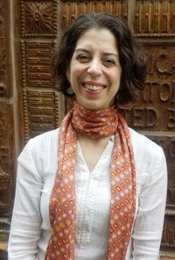
Seminar: “South Asians and West Africans at the Inns of Court: Empire and Expulsion circa 1900”
Description: Between the 1860s and 1950s, thousands of non-European students from across the British empire studied at the Inns of Court in London to become barristers. Using the disbarment files of the Honourable Society of the Inner Temple, this paper explores the experience of being a colonial lawyer or law student in the British empire at the turn of the twentieth century. It focuses on three disciplinary cases involving South Asians or West Africans: A. K. Ghose and his fraudulent “spirit letters,” anti-imperial revolutionary Shyamji Krishnavarma, and O. R. Aladé following a criminal conviction. These three cases occurred in the relatively early days of the flow of South Asian and West African students to the Inns. They reflected the imperial legal profession’s views of racial difference; truthfulness, deception, good character, and loyalty to British rule; and the definition of terrorism and the legitimacy of using violence to resist tyranny. The paper is part of a larger book project on non-Europeans at the Inns of Court.
Preseminar readings:
Mack, "Representing the Race"
Sharafi, "Introduction" to Law and Identity in Colonial South Asia: Parsi Legal Culture, 1772-1947
2018/19
November 1, 2019: Gorden Christie (UBC)
Seminar: “Working with Perspectives in Making Sense of Section 35 Jurisprudence”
Professor Gordon Christie is one of Canada’s leading Indigenous scholars. He joined the UBC Faculty of Law in 2004 and held the position of Academic Director of the Indigenous Legal Studies Program at UBC’s Allard School of Law from 2005 to 2016. Professor Christie is of Inupiat/Inuvialuit ancestry. He researches in the areas of Aboriginal rights, Aboriginal title, Indigenous self-determination, and the Crown’s duty to consult and accommodate Indigenous peoples. He especially focuses on the intersection between Indigenous law and Aboriginal law that has developed through Canadian jurisprudence on section 35 of the Constitution Act, 1982.
Professor Christie holds a BA in Philosophy from Princeton University, an LLB from the University of Victoria, and a PhD in Philosophy from the University of California, Santa Barbara. He has taught at Lakehead University, Central Michigan University, and Osgoode Hall Law School at York University from 1998 to 2004, where he was the Director of the Intensive Program in Aboriginal Lands, Resources and Governments. This session coincides with the publication of his new book: Canadian Law and Indigenous Self‐Determination: A Naturalist Analysis (University of Toronto Press).
Abstract: Explanations of the nature of the jurisprudence on section 35 are wildly divergent, and there appear to be no serious efforts underway to work toward any sort of convergence. Arguably, much of this phenomenon is the result of the groundings of legal theorists’ work in varied perspectives. I tackle this problem directly, arguing for a form of methodological naturalism that treats the facts of divergence and perspectivalism as matters to be explored in the social worlds we inhabit. The result is, I argue, an explanation for what Canadian courts have been doing that makes sense of not just the jurisprudence but of approaches to the jurisprudence evident in the literature.
Pre-Seminar Reading:
Christie, Suppression of Indigenous Understandings of Justice and Morals
Seminar Reading:
Christie, "Differing Understandings and the Way Forward"
October 4, 2019: Alex Livingston (Cornell University)
Seminar: “Tough Love: The Political Theology of Civil Disobedience"
Alexander Livingston is Associate Professor in the Department of Government at Cornell University. His research examines race, religion, and dissent with a focus on American political thought. He teaches courses on civil disobedience, theories of democracy, political violence and nonviolence, contemporary political theory, and the history of political thought.
His first book, Damn Great Empires! William James and the Politics of Pragmatism (Oxford University Press, 2016), examines William James’s role in debates about U.S. imperialism at the turn of the century to show how pragmatism developed as a political response to crises of authority and sovereignty driving the expansion of American global power. His current book project, Inventing Civil Disobedience, looks at the theory and practice of civil disobedience in the long civil rights movement, and their afterlives in contemporary protest politics. Before coming to Cornell, he was a Social Science and Humanities Research Council postdoctoral fellow at Johns Hopkins University (2011-2013). He received his Ph.D. from the University of Toronto.
Abstract: This article examines the meaning of love in the theory and history of civil disobedience. Taking as its focus Martin Luther King, Jr.’s paradoxical notion of “aggressive love,” it offers a critical interpretation of love as a key concept in a vernacular black political theology, and the consequences of love’s displacement by law in liberal theories of disobedience. The first section contextualizes the origins of aggressive love in an earlier generation of black theologians who looked to India’s anticolonial struggle to reimagine the dignity of the oppressed as “creative survival.” The second contextualizes King’s early sermons on moral injury, self-respect, and personalism within this tradition to reinterpret Stride toward Freedom’s account of nonviolent resistance as love’s triumph over fear. The third considers this political theology’s implications for conceptualizing the moral psychology of the white citizen, and its consequences for contemporary debates over protest and the ideological uses of Civil Rights history. Responding to oppression with aggressive love illustrates a paradoxical character of civil disobedience obscured by both legal theories and criticisms of the very idea of “civil” disobedience. This is the paradox of affirming civility while enacting disobedience in order to bind political confrontation with political pedagogy.
Pre-Seminar reading:
Livingston, “Tough Love”
March 8, 2019: Melvin Rogers (Brown University)
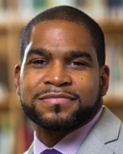
Seminar: Being a Slave of the Community: Race, Domination, and Republicanism
Professor Rogers has wide-ranging interests located largely within contemporary democratic theory and the history of American and African-American political and ethical philosophy. His first book, The Undiscovered Dewey: Religion, Morality, and the Ethos of Democracy, explored these issues through an interpretation of John Dewey's writings and the theme of human responsiveness central to his work. That book was haunted by the unpursued theme of racial injustice and its place in American democracy. Professor Rogers' second book--The Darkened Light of Faith: Race, Democracy, and Freedom in African American Political Thought--will be devoted to figures within American and African-American political thought; it will combine close readings of figures and historical contextualization to think through the themes of democratic responsiveness, redemption, and faith amid racial injustice.
In addition to his past published book and current book project, he has edited John Dewey, The Public and its Problems, is at work on African American Political Thought: A Collected History (under contract: University of Chicago Press), a collection of 32 essays on figures in the tradition of African American political thought co-edited with Jack Turner, as well as a new edited project tentatively titled Race and the Imagination. His articles appear in major academic journals as well as popular venues such as Dissent, the Atlantic, Public Seminar, and Boston Review.
In addition to these past and current projects, Professor Rogers now serves as the co-editor of Oxford University Press New Histories of Philosophy series. The series attends to the unstudied resources in the history of philosophy. Although I'm interested in the entire series, I'm especially keen to build its list in Africana Philosophy.
Abstract:
Any effort to understand approaches to justice that rest on principles of non-domination would do well to reflect on those who have sought to address racial domination. In particular, the resources of 19th century African-American political thought have much to offer. In the 19th century African American intellectuals, seeking to discover how to undo and ward off racial domination, drew on two different strands of the philosophical tradition of republicanism. In the process they produced a third strand in which republicanism is linked to racial equality. A look at this body of work offers us the chance to recover resources for contemporary projects of justice, while also requiring us to revise traditional accounts of when and where republicanism, as a political theory, has waxed and waned. It will turn out that the work of building a political theory for justice as non-domination also requires undoing forms of domination reflected in the historiographic tradition. My lecture will recover this tradition in the African-American political thought while raising doubts about the inadequacy of the current revival of republicanism in addressing racial domination.
Seminar Presentation:
-
Being a Slave of the Community: Race, Domination, and Republicanism
Seminar Paper:
-
Being a Slave of the Community
Pre-seminar Readings:
-
Rereading Honneth: Exodus Politics and the Pardox of Recognition
-
David Walker and the Political Power of the Appeal
February 8, 2019: Kyle Whyte (Michigan State University)
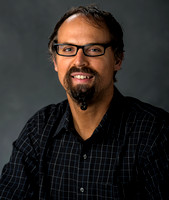
Seminar: It's Too Late for Indigenous Justice: Problems with Urgency in Climate Change Advocacy
I am a professor and environmental activist working at Michigan State University (MSU). My website features general information and links about my research and projects, drafts of my published and forthcoming articles and short essays (including the Indigenous science letter), teaching and research materials on #NoDAPL and Indigenous climate justice, and places where you can followmy updates.
My work focuses on the problems and possibilities Indigenous peoples face regarding climate change, environmental justice, and food sovereignty.
I participate in some great and unique programs at MSU that I encourage you to check out, including Philosophy, Community Sustainability, American Indian & Indigenous Studies, Environmental Science & Policy, Environmental Philosophy & Ethics and the Geocognition Research Lab.
Climate change activism and scientific assessments often emphasizes that humans must grasp the urgency of taking swift and decisive actions to address an environmental crisis. Yet many such conceptions of urgency obscure the factors that Indigenous peoples have called out as the most pressing concerns about climate justice. This obfuscation explains, in part, why climate change advocacy remains largely unrelated to Indigenous efforts to achieve justice and engage in decolonial actions. I will show why a politics of urgency can be based in assumptions about the relationship among time (temporality) and environmental change that are antithetical to allyship with Indigenous peoples. I will contrast the temporality of urgency with some Indigenous traditions of temporality that center moral qualities of kinship relationships, such as consent, trust and reciprocity, and suggest that such Indigenous traditions articulate crucial conditions for climate justice, moving forward.
Seminar Presentation
- It's Too Late for Indigenous Justice: Problems with Urgency in Climate Change Advocacy
Pre-seminar Readings
- TBA
January 18, 2019: Dean Spade (Seattle University)

Seminar: Solidarity Not Charity: Mutual Aid for Mobilization and Survival
In 2002, Dean founded the Sylvia Rivera Law Project, a non-profit law collective that provides free legal services to transgender, intersex and gender non-conforming people who are low-income and/or people of color. SRLP also engages in litigation, policy reform and public education on issues affecting these communities and operates on a collective governance model, prioritizing the governance and leadership of trans, intersex, and gender non-conforming people of color.
Dean's book, Normal Life: Administrative Violence, Critical Trans Politics and the Limits of Law was published by South End Press in 2011. A second edition with new writing was published in 2015 by Duke University Press. Bella Terra Press published a Spanish edition in 2016.
In 2015, Dean released a one-hour video documentary, Pinkwashing Exposed: Seattle Fights Back!, which can be watched free online with English captions or subtitles in several languages.
Dean's videos, articles, interviews, book chapters, and syllabi are available on his website.
Abstract:
Seminar Presentation
-
Solidarity Not Charity: Mutual Aid for Mobilization and Survival
Pre-seminar Readings
- Normal Life
-
Now Is the Time for ‘Nobodies’: Dean Spade on Mutual Aid and Resistance in the Trump Era
November 9, 2018: Mark Antaki (McGill University)
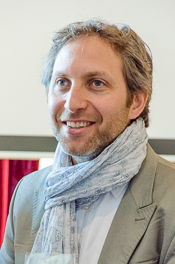
Seminar: Legalities and Literacies
Biography:
Mark Antaki is an Associate Professor of Law at McGill University’s Faculty of Law. He graduated from McGill in 1996 under the National Programme with a BCL and an LLB. He has a PhD in Jurisprudence and Social Policy from the University of California, Berkeley. His doctoral thesis undertook a "Genealogy of Crimes Against Humanity." He is the co-editor of Sensing the Nation’s Law : Historical Inquiries into the Aesthetics of Democratic Legitimacy. He has published on such things as the turn to imagination in legal theory, the discourses of ‘values’ and ‘proportionality’ in constitutional law, the metaphor of the book in South Africa’s interim constitution, and Roland Barthes and the common law. His work often involves attending to language and the transformation of shorthand into keywords.
Abstract:
‘Legalities,’ an infrequently used term, points to the insight that law can be and can be lived in different ways, and sometimes goes by the name of ‘polyjurality’. ‘Literacy’ is usually taken to refer to the ability to read or write text and is narrowly associated with the alphabet but has recently undergone a massive expansion in sense, hence the plural ‘literacies.’ With this new and developing project, I wish to explore the relation between how ‘we’ live law and how we read and write, including how we read and write ourselves. More specifically, I seek to inquire into the significance of re-framing ‘law and literature’ as ‘legalities and literacies.’ I aim to ask whether and how such re-framing captures a trajectory of law and literature and what is at stake in humanistic legal scholarship, whether and how thinking in terms of legalities and literacies can contribute, or is even essential, to responding to the various calls to action of the Canadian Truth and Reconciliation Commission, whether and how thinking in terms of legalities and literacies can contribute to an approach to legal education that avoids second-class courses (introductory, legal research) and sidesteps traditional divides such as theory-practice.
Seminar Presentation:
-
Legalities and Literacies
Pre-seminar Readings:
-
Genre, Critique, and Human Rights
-
Declining Accusation
October 26 2018: Deva Woodly (New School)
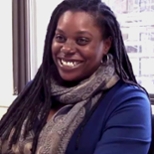
Seminar: Black Feminist Vision and the Politics of Healing in the Movement for Black Lives
Abstract:
The Movement for Black Lives (#BlackLivesMatter) has developed a political philosophy rooted in black feminist thought, which posits that it is only by centering the most marginalized that we will be able to imagine and enact just social practices and institutional/legal policies. This vision of "healing justice" inspires both the organizational practices and political action of the movement. To answer the interlocking structural oppression that the most marginalized face, movement actors begin by acknowledging that feelings are not the opposite of intellect and that care and affirmation are not only personal, but critically, political resources. In this paper I explore both the empirical impetus for this margin-to-center philosophy advocating healing justice and the theoretical and practical implications of basing a social movement's political philosophy on the treatment of trauma and the necessity of care.
Biography:
Deva Woodly is an Associate Professor of Politics at the New School. A former fellow of the Institute for Advances Study (2012-2013), she is the author of The Politics of Common Sense: How Social Movements Use Public Discourse to Change Politics and Win Acceptance (Oxford 2015). Her research covers a variety of topics, from media & communication, to political understandings of economics, to race & imagination, & social movements. In each case, she focuses on the impacts of public discourse on the political understandings of social and economic issues as well as how those common understandings change democratic practice and public policy. Her process of inquiry is inductive, moving from concrete, real-world conditions to the conceptual implications of those realities. In all cases, she centers the perspective of ordinary citizens and political challengers with an eye toward how the demos impacts political action and shapes political possibilities. Her current book projects are #BlackLivesMatter and the Democratic Necessity of Social Movements, an examination of the ways that social movements re-politicize public life in times of political despair and What We Talk About When We Talk About the Economy, a broad investigation of American economic discourse and its implications for politics and policy in the post-Great Recession era.
Seminar Presentation:
-
Black Feminist Visions and the Politics of Healing in the Movement for Black Lives
Pre-seminar Readings:
-
Black Lives Matter and the Democratic Necessity of Social Movements
October 1, 2018: Lori Gruen (Wesleyan University)
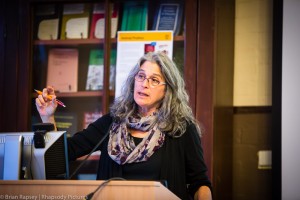
Seminar: Resistance Self-Respect: Another Challenge for Liberalism
Biography:
Lori Gruen is the William Griffin Professor of Philosophy at Wesleyan University where she coordinates Wesleyan Animal Studies. She is also Professor of Feminist, Gender and Sexuality Studies and Science in Society. She is the author and editor of eleven books, including Ethics and Animals: An Introduction (Cambridge, 2011), The Ethics of Captivity (Oxford, 2014), and Entangled Empathy (Lantern, 2015) and the forthcoming Critical Terms for Animal Studies (2018) She is a Fellow of the Hastings Center for Bioethics and a Faculty Fellow at Tufts’ Cummings School of Veterinary Medicine’s Center for Animals and Public Policy and was the first chair of the Faculty Advisory Committee of the Center for Prison Education at Wesleyan. Gruen has documented the history of The First 100 chimpanzees in research in the US and has an evolving website that documents the journey to sanctuary of the remaining chimpanzees in research labs The Last 1000.
Her research lies at the intersection of ethical theory, political philosophy, and social practice. She has written on a range of topics and her current projects include exploring ethical and political questions raised by captivity and carceral logics.
Seminar Presentation:
-
Resistance Self-Respect: Another Challenge for Liberalism
Pre-seminar Readings:
-
Robin Dillon, "Self-Respect: Moral, Emotional, Political"
-
Tommie Shelby, “Liberalism, Self-Respect, and Troubling Cultural Patterns in Ghettos”
2017/18
March 23, 2018: Christopher Lebron (Johns Hopkins)
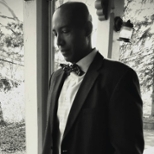
Seminar: The Duty To Imagine - Afrofuturism vs White Identity Narrative - Cancelled
Seminar Presentation
- TBA
Pre-seminar Readings
- Black to the Future (main reading)
- Equality from a Human Point of View (supplementary reading)
February 2, 2018: Joel Bakan (UBC)

Seminar: The Corporation II
Seminar Presentation
Pre-seminar Readings
January 19, 2018: Julen Etxabe (University of Helsinki)

Seminar: Dialogism in the Courts: What’s in it for Law, Human Rights, and Democracy?
As a Fulbright scholar, he completed his SJD at the University of Michigan Law School with James Boyd White. He has taught at the University of Michigan (2008-10) and at the Faculty of Law of the University of Helsinki since 2010. He was a research fellow at the Helsinki Collegium for Advanced Studies (2014-2017) and co-editor in chief of No-Foundations: An Interdisciplinary Journal of Law and Justice from 2012 to 2017.
He is the author of The Experience of Tragic Judgment (Routledge 2013) and the editor of three other books, most recently Rancière and Law (Routledge 2018) and Cultural History of Law in Antiquity (Bloomsbury, forthcoming). His current book project entitled Judicial Dialogues and the Conversation of Democracy seeks to illuminate the adjudicatory practices of several high courts in the world through the Bakhtinian concept of dialogism. Beyond identifying a global shift towards increasingly dialogical forms of judgment, the book seeks to theorize how these changes are transforming inherited notions of legal reasoning, legal authority, human rights, and the rule of law more generally.
Seminar Presentation
Pre-seminar Readings
- Jacques Rancière and the Dramaturgy of Law (main reading)
- Law as Politics: Four Relations (supplementary reading)
November 3, 2017: Barbara Arneil (UBC)
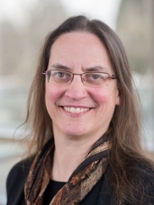
Seminar: Domestic Colonies and Colonialism vs Imperialism in Western Political Thought and Practice
Seminar Presentation
Pre-seminar Readings
October 13, 2017: Orit Kamir (Israeli Center for Human Dignity)
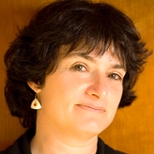
Seminar: Escape from Dignity: The Honour Politics of Jihad, Social Media Shaming, and Trump.
Orit Kamir publishes, teaches and is socially active in three interdisciplinary areas: 1. Dignity, respect and honor as moral/ethical values, bedrocks of social structures, and foundations of legislation and policy making; 2. Law-and-Film: analysis of mutual influences of two powerful contemporary discourses, that have substantial impact on the creation and determination of individuals’ and societies’ forging of their self-perceptions and visions of their identities and futures; 3. Gender politics in societies, cultures and laws. She has authored six monographs and dozens of articles, mostly in these areas, in English and in Hebrew, and has taught in universities in Israel and the United States. She has participated in drafting legislation in Israel, and as founder and academic head of the center for human dignity in Israel she has worked with diverse audiences on implementing dignity and respect in daily life as well as institutional policy making. She earned her BA in law, philosophy and literature at the Hebrew University in Jerusalem, and her Masters and Doctorate in Law and Culture at the University of Michigan (under the supervision of the founder of Law and Literature, Prof. J. B. White). She is an active participant in Israel’s public discourse and a social activist in gender equality and human rights.
Seminar Presentation
Pre-seminar Readings
September 22, 2017: Leslie Green (Queens University)
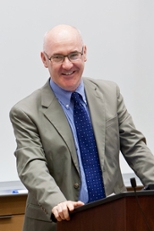
Seminar: The Normativity of Law: What is the Problem?
Leslie Green is the Professor of the Philosophy of Law and Fellow of Balliol College, Oxford. He also holds a part-time appointment as Professor of Law and Distinguished University Fellow at Queen's. After beginning his teaching career at Lincoln College, Oxford, he moved to Osgoode Hall Law School in Toronto. He has visited and taught at many other law faculties, including Berkeley, Columbia, NYU, Chicago and, for some years, at the University of Texas at Austin. He writes and teaches in the areas of jurisprudence, constitutional theory, and moral and political philosophy. He serves on the board of many journals and is co-editor of Oxford Studies in Philosophy of Law.
Seminar Presentation
Pre-seminar Readings
2016/17
March 17, 2017: Avery Kolers (University of Louisville)
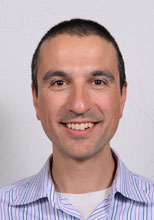
Seminar: The Territorial Rights of Animals: Zoopolis and Beyond
Professor Kolers’ particular research interests include issues surrounding territorial rights and solidarity. These highly “applied” issues touch on a wide range of problems, but also raise hard questions about how to navigate deep diversity in a shared world. His 2009 book Land, Conflict, and Justice: A Political Theory of Territory (Cambridge University Press) won the Canadian Philosophical Association’s biennial book prize. More recently, his 2012 article “Floating Provisos and Sinking Islands” received the Journal of Applied Philosophy prize, awarded for “the best article published in the year’s volume.”
Currently, Professor Kolers is working on a book on solidarity and further articles on territorial rights. He has initiated a research project on the emergence of a discourse of indigenous title in the 16th-century Spanish Dominicans Francisco de Vitoria and Bartolomé de Las Casas as they grappled with the moral and political implications of the Encounter with the “new world.”
Seminar presentation:
-
The Territorial Rights of Animals: Zoopolis and Beyond
Pre-seminar readings:
-
Attachment to Territory: Status or Achievement? (primary reading)
-
Animals and the Frontiers of Citizenship (supplementary reading)
February 24, 2017: Patricia Williams (Columbia University)
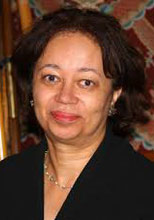
Seminar: On rights and reality: from stated exceptions to states of exception
Professor Williams received her B.A., Wellesley, 1972 & J.D., Harvard, 1975. She practiced as deputy city attorney, Office of the Los Angeles City Attorney; and as staff lawyer, Western Center on Law and Poverty. She has served on the faculties of the University of Wisconsin School of Law, City University of New York Law School, and Golden Gate University School of Law and has been at Columbia since 1991.
Professor Williams is fellow, at the School of Criticism and Theory, Dartmouth College, and at the Center for Advanced Study in the Behavioral Sciences. She has published widely in the areas of race, gender, and law, and on other issues of legal theory and legal writing. Her books include The Alchemy of Race and Rights; The Rooster's Egg; and Seeing a ColorBlind Future: The Paradox of Race. Columnist, The Nation. MacArthur fellow. Board of Trustees, Wellesley College.
Seminar presentation:
-
Breeding, Or The New Black: On Fashioning Genetic Brand
Pre-seminar readings:
-
The Alchemy of Race and Rights
-
The Holman Rule Once Allowed Congress to Purge Leftists From Government Agencies—Now It’s Back
January 20, 2017: Brenna Bhandar (University of London)

Seminar: Racial Regimes of Ownership: Thinking Through Property with Cedric J. Robinson
Professor Bhandar’s current research project explores the relationship between racial formations and modern property law in settler colonial contexts. She examines articulations of race and ownership that emerge through the appropriation of Indigenous lands, drawing on a combination of critical theory, archival sources, and interviews in Canada, Australia and Israel/Palestine.
Professor Bhandar is co-editor (with Jon Goldberg-Hiller) of the book Plastic Materialities: Legality, Politics and Metamorphosis in the work of Catherine Malabou (Duke University Press, 2015). The contributions in this volume assess the political and philosophical implications of Malabou's innovative combination of poststructuralism and neuroscience across the disciplines of legal theory, sociology, literature and philosophy.
She is also co-editor of a special issue of Darkmatter Journal, "Reflections on Dispossession: Critical Feminisms" (2016, with Davina Bhandar). This collection traces a path for contemporary critiques of neoliberal capitalism and colonial dispossession. The authors show the compelling need for complex strategies and tools to evaluate the interlocking or intersectional practices of dispossession, and their particular effects on racialised, Indigenous, sexualized, and gendered subjects.
Lastly, Professor Bhandar is co-editor of the Routledge Book Series, Law and the Post-Colonial: Ethics, Politics & Economy, and has served on the editorial board of Feminist Legal Studies and the International Advisory Board of the Law and Society Review.
Seminar presentation:
-
Racial Regimes of Ownership
Pre-seminar readings:
-
Title by Registration
-
Disassembling Legal Form

